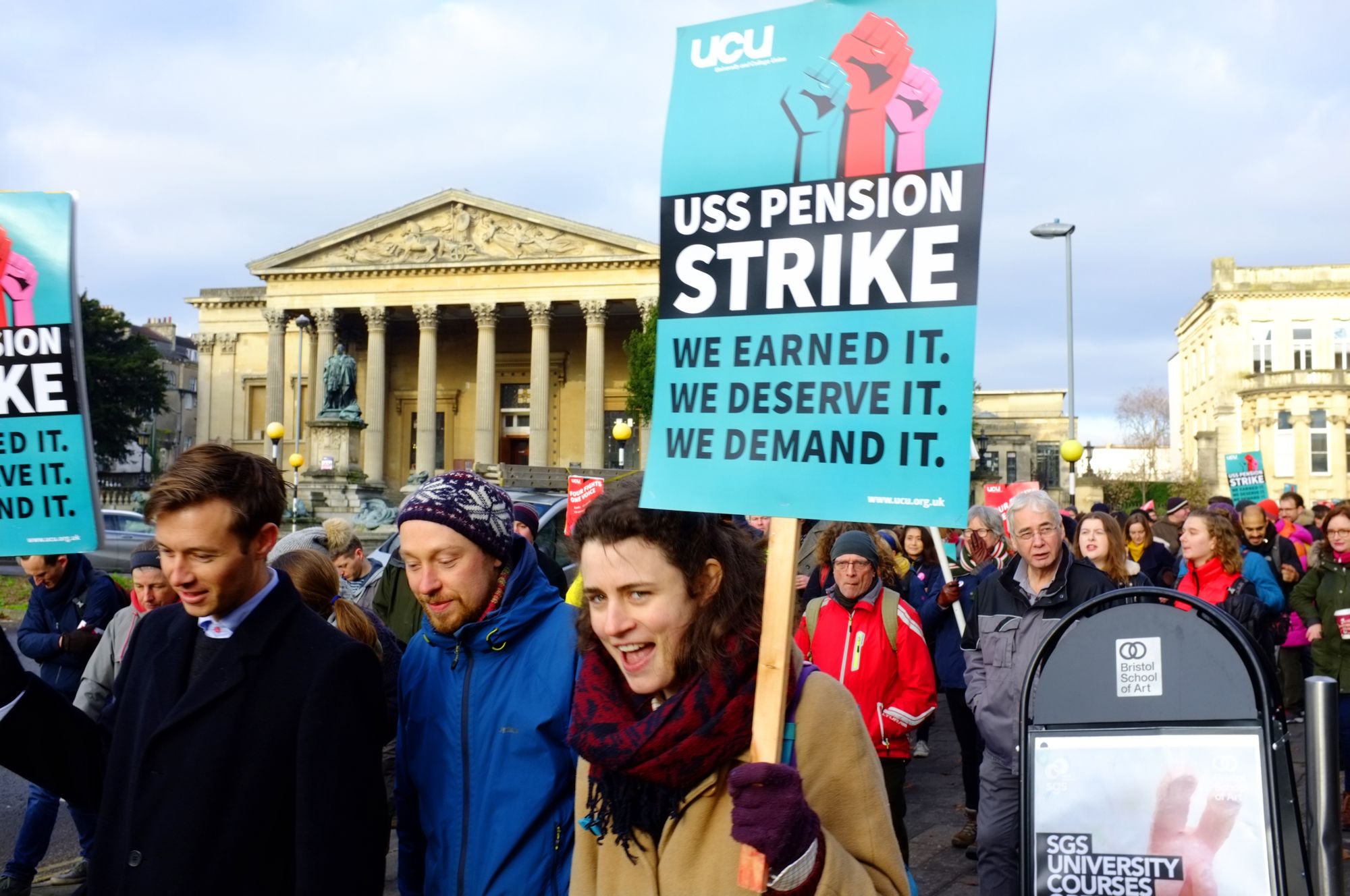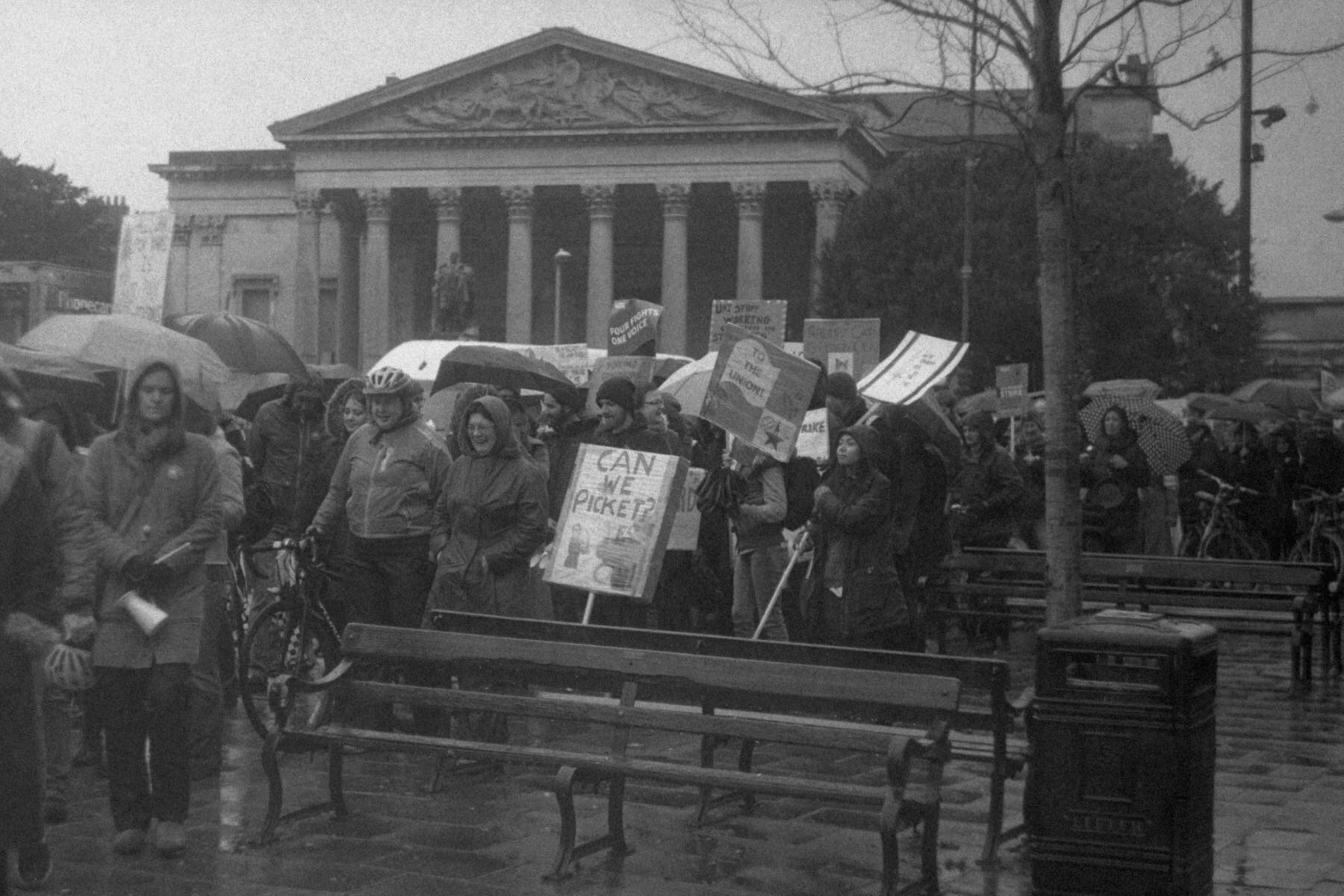By Lucas Arthur, First Year, Geography
From the 25thNovember to the 4thof December, Bristol University staff have been striking to protest “changes to salaries, proposed changes to the national pension scheme, workload and the gender pay gap”. If this explanation seems lacking in context, the following article should be of interest.
The University is acting alongside some 59 other institutions, all of whom are members of the University and College Union (UCU): The organisation represents over 120,000 academics and support staff in educational capacities across the UK. During a poll conducted at the start of November, the union voted in favour of strike action on two legal disputes.

The first was related to changes to the Universities Superannuation Scheme (USS). The £50 billion pension scheme is the second largest in the UK, covering virtually all university academics and support staff in the country.
According to the UCU, changes to the scheme since 2011 mean that “a typical member will pay around £40,000 more into their pension but receive almost £200,000 less in retirement, leaving them £240,000 worse off in total.”
The most recent change, passed in August, required members to contribute 9.6% of their salary to the scheme annually, up from 8.8%. The UCU believes a cap of 8% is both fair and necessary.

The second motion concerned pay, casualisation, equality and workloads. One study carried out by the UCU showed that staff pay has dropped by around 17% in real terms since 2009.
The UCU argued that the decrease was closer to 20.8%, citing RPI inflation of 20.8% over the period versus a pay increase of 11%. A university spokesperson has stated that staff are consequently seeking a pay offer which gives a three per cent rise, or an increase of £3,349 - whichever is greater.
Concerns regarding casualisation centre around insecure, short term working contracts, as opposed to those on a more permanent basis. Such terms offer worse employment benefits and inhibit long-term career planning, sometimes leading to pressures on mental health.
Main @Bristol_UCU Vic Rooms picket this morning #UCUStrikesBack pic.twitter.com/rqRwez0anD
— Bristol UCU (@Bristol_UCU) December 4, 2019
In an interview with Epigram, Vice-Chancellor Hugh Brady said: ‘On casualisation, I think we’re like-minded with our local UCU branch that we want to put as many contracts as possible on a more stable footing.'
'We have a precarious contracts working party, which is a joint initiative between the University and UCU to figure out ways that we can do that.’
‘On casualisation, I think we’re like-minded with our local UCU branch that we want to put as many contracts as possible on a more stable footing.' Hugh Brady, UoB Vice-Chancellor
Zero-hours contracts, where employees are not guaranteed any hours of work, are also under scrutiny, with the UCU demanding that universities offer more secure contracts wherever possible.

Alongside this, a UCU analysis highlighted an average pay gap of 9% between black, minority and ethnic (BME) staff and their white colleagues.
This was partly attributed to white staff holding higher positions within universities on average; One in nine white academic staff are professors, compared to one in 33 black academic staff. As such, the UCU is demanding that universities “transform their practices to implement real change for BME staff”.
Like those in 2018, Bristol Student Union is backing the strikes. A statement on the SU website explains that members voted in favour of support last year, and that the policy is active for 3 years forward of that date.
It goes on to state that “fairly rewarded staff are the cornerstone of the university experience and it is vital for students to come together to support our lecturers”.
Featured image: Epigram / Kofo Ajala
Do you support the UCU strikes? Let us know in the comments section!








